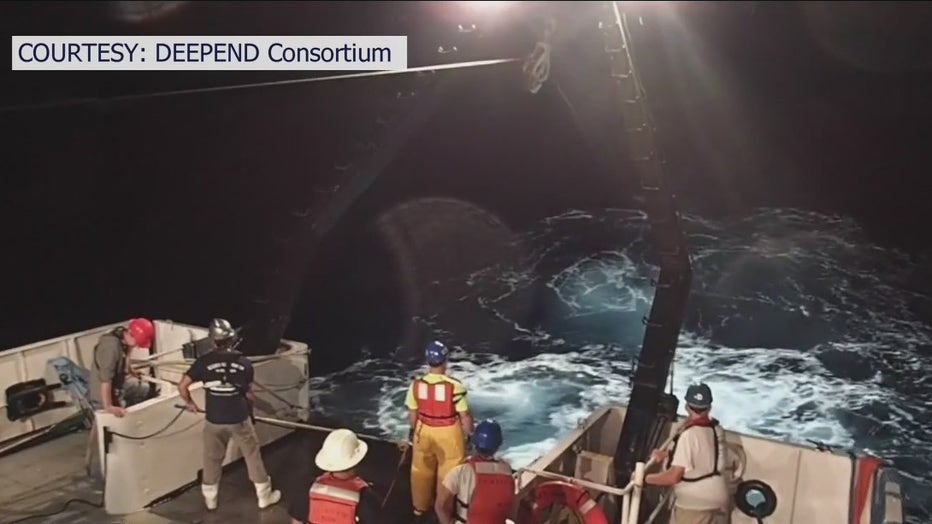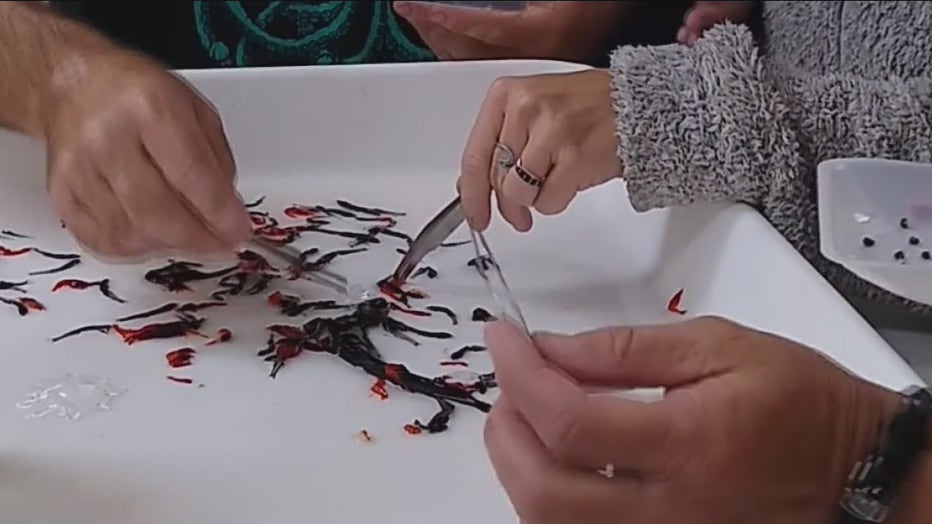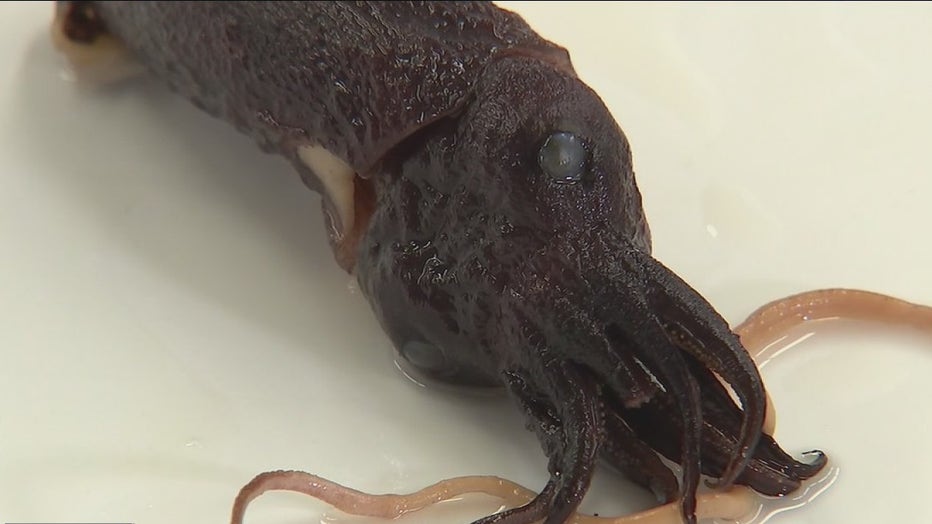USF biologist discovers new marine life species while studying 2010 oil spill impacts in the Gulf of Mexico
ST. PETERSBURG, Fla. - A University of South Florida St. Petersburg biologist is back on land after discovering new species of marine life while out in the Gulf of Mexico. She was studying the impacts of the 2010 oil spill and the fish affected by the environmental disaster.
Heather Judkins is a researcher on the DEEPEND Consortium cruise documenting the middle water column of the Gulf. A five-year grant from NOAA RESTORE funds the 12 to 14 days of scientific cruising that Judkins joined in 2019. She returned from the latest summer of research last week.
"I love going out to sea. It is amazing even though it’s exhausting and very tiring work. It’s super rewarding," said Heather Judkins, an associate professor in the integrative biology department at USF's St. Pete campus.
She is part of a team studying the environmental impacts of the 2010 Deepwater Horizon oil spill.

"The reason our stuff is really important is because before the oil spill, we didn’t have much information about the Gulf of Mexico and many of the offshore deep-sea regions," Judkins said.
READ: Beach communities recovering well 7 years after oil spill
As a result, a big part of the research includes documenting marine life there now.
"From 0 to about 4,000, 5,000 feet deep, we never hit the bottom. We’re always looking at this middle water which is never really investigated a lot," said Judkins.
The scientists drop a net in a 5-6 hour process and bring up some deep-sea creatures that weren’t previously documented.

"We have been able to find new fish species, new crustacean species, and new squid and octopus species. I study squid and octopus, so I’m always excited when we find that," said Judkins.
The latest new species she discovered was a type of glass squid, and she said those findings will be published this fall. Previous new species that Judkins and the team of scientists discovered in the Gulf were published in 2020.

Judkins explained why mapping out what lives where and why matters 12 years later.
MORE: USF study: 'Substantial' amount of Deepwater Horizon oil still lives on in the environment
"At the oil spill during the litigation that was going on with the government, one of the questions was, ‘How do you restore the mid-water ocean?’ We have not even an idea of what’s there. So how to restore something, all of our information, is better informing our governmental partners, our nonprofit partners," said Judkins.

She said the work gives a framework for the next potential oil spill in the ocean, and it could help predict changes over time.
"So this happened in the deep water of the Gulf of Mexico, here we are in the northern Atlantic, maybe something happens there. Now at least we have something to compare to and maybe see what types of organisms live there," said Judkins.
Judkins said she could not get into specific details about what else they found, because they’re still working on that research, and it’s not published yet. Details on the newest species they found, and other impacts will be public in a matter of weeks.

